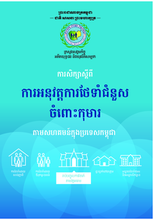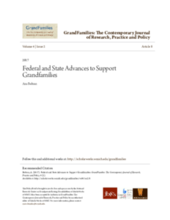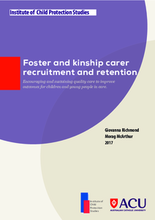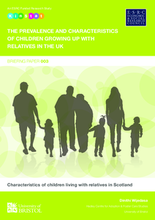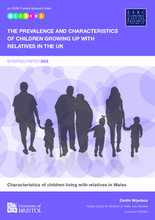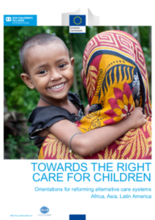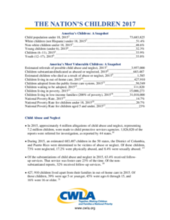Displaying 331 - 340 of 608
The ‘Study on Alternative Care Community Practices for Children in Cambodia, including Pagoda-based care’ (published in Khmer) is the first of its kind which sheds light on how different forms of alternative care are being used in the community.
This policy brief highlights the work of the Grandfamilies Advocacy Network Demonstration to advocate for policy reforms for grandfamilies in the US.
The subject of this report is to present the findings of stage two of a project aimed to address the anticipated risk to the foster care workforce by identifying and disseminating the most effective strategies to attract, support and retain foster caring families across all states and territories in Australia.
This briefing paper, which is the third in a series, provides a brief overview of the characteristics of the children growing up with relatives in Scotland.
This briefing paper, which is the second in a series, provides a brief overview of the characteristics of the children growing up with relatives in Wales.
This podcast episode, 'Supporting Kinship Caregivers Part 1', is the first of a two-part series showcasing successful examples of kinship navigator programs connecting kinship families with available services.
This documentary tells the stories of four Aboriginal grandmothers in Australia whose grandchildren have been removed and placed in state care, and who are fighting to have their grandchildren placed in their care.
This synthesis report contains findings of a study that conducted research in six South and Central American, Asian and African countries for the purpose of gaining understanding of the nature, extent, and scope of institutionalization and the feasibility of deinstitutionlisation.
The Nation's Children 2017 provides the most up-to-date data on the status of children in the United States, with statistics on children in out-of-home care, child abuse and neglect, adoption, poverty and other risk factors, and more.
Undertaking a connected person / family and friends assessment is designed to help social workers to manage and complete a comprehensive and evidence-based assessment of connected people / family and friends who wish to foster or be special guardians to a known child or children.

